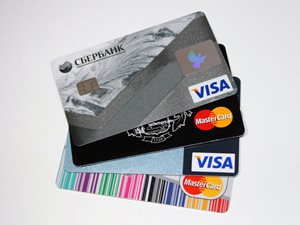 A three number score can impact so much of your life. From getting approved for credit cards, receiving loans to buy a car or home, to even what jobs you can be hired for, your credit score is incredibly important.
A three number score can impact so much of your life. From getting approved for credit cards, receiving loans to buy a car or home, to even what jobs you can be hired for, your credit score is incredibly important.
Whether you are just starting out and have no credit, struggle with low credit, or just pushing to get into the top credit score range, improving your credit can be a confusing and slow process. To get you started, here’s some best practices to raise up your credit score.
Do You Know What Your Credit Score Is?
First off, do you know what your exact credit score is? Don’t simply make assumptions of what your credit score is, know the exact number. That way, you know how much work you have ahead of you, and can be a starting point for your personal credit plans.
In case you don’t know if your credit score is good or not, here’s the range:
- 300-579: Very poor
- 580-669: Fair
- 670-739: Good
- 740-799: Very good
- 800-850: Exceptional
If your credit score surprises you, especially if it’s lower than you expected, consider getting copies of your credit reports. You are eligible to one free copy of your credit report each year from each credit bureau, so use it. That way, you can see what specific events are affecting your credit score, such as missed credit card bills or multiple hard inquiries.
Pay All of Your Bills On Time
Before you start growing your credit, you need to stop actively hurting it. The most common negative marks on people’s credit is late or missed payments on their bills. That includes credit cards, rent, utilities, anything bill you have can be reported to the credit union if you are late on.
If you can stay on top of paying your bills in full and on time, those positive payments will be added to your credit reports, which your credit score is based on. This is the most consistent and easy to accomplish way to grow your credit over time.
Repairing Your Credit
 People make mistakes, and your credit report isn't immune to them. It’s quite likely your credit reports have mistakes that are lowering your credit score unfairly.
People make mistakes, and your credit report isn't immune to them. It’s quite likely your credit reports have mistakes that are lowering your credit score unfairly.
This is why it’s important you get copies of your credit reports. Go through them with a fine tooth comb, and if any negative marks have any mistakes, from a misspelled name to having one penny off, you can dispute it and get it removed. Sometimes, even missed payments belonging to other people might show up on your credit report.
If your identity has ever been stolen, repairing your credit is likely something you need to do. Fraudulent charges and missed payments from an identity thief should not be on your credit report and can be removed.
Disputing is a time consuming task, so make sure you study up on what exactly you need to do in order to file a dispute. If you don’t have the time to do the research and work, hiring somebody to file the disputes for you is an option.
Get a Credit Card or Secured Credit Card
 Depending on your current credit situation, you might or might not be able to get a credit card. If you can, great! Use it wisely. Be sure to never put more money than you can handle on a credit card and also pay it on time. Actively utilizing your credit card helps build your credit score.
Depending on your current credit situation, you might or might not be able to get a credit card. If you can, great! Use it wisely. Be sure to never put more money than you can handle on a credit card and also pay it on time. Actively utilizing your credit card helps build your credit score.
If you can’t qualify for a credit card, look into getting a secured credit card. A secured credit card has some type of payment that acts as collateral and will cover the limit of your credit card. For example, if you have a $500 limit on the card, you have to put down a $500 collateral in order to get the card. Then use it like normal credit card and grow your credit score.
Use Pioneer's Credit Builder Loan
Another tool in your pocket to build your credit is Pioneer’s Credit Builder Loan. It’s a great way to have payments on a loan recorded on your credit reports without actually having to take out a loan.
Here’s how it works: You apply and take out a loan for $500, but you don’t get the money. Then, month to month, you make payments on it, and that payments goes into a savings account Pioneer holds onto. Then, once you’ve finished paying off the loan, we give you the money in the savings account and you’ve built up your credit score.
Interested in learning more about the Credit Builder Loan? Visit our page all about it, give us a call, stop by your local branch, or use the myPioneer Personal Assistant app to get all the details on it.
Learn more about Credit Builder Loans!